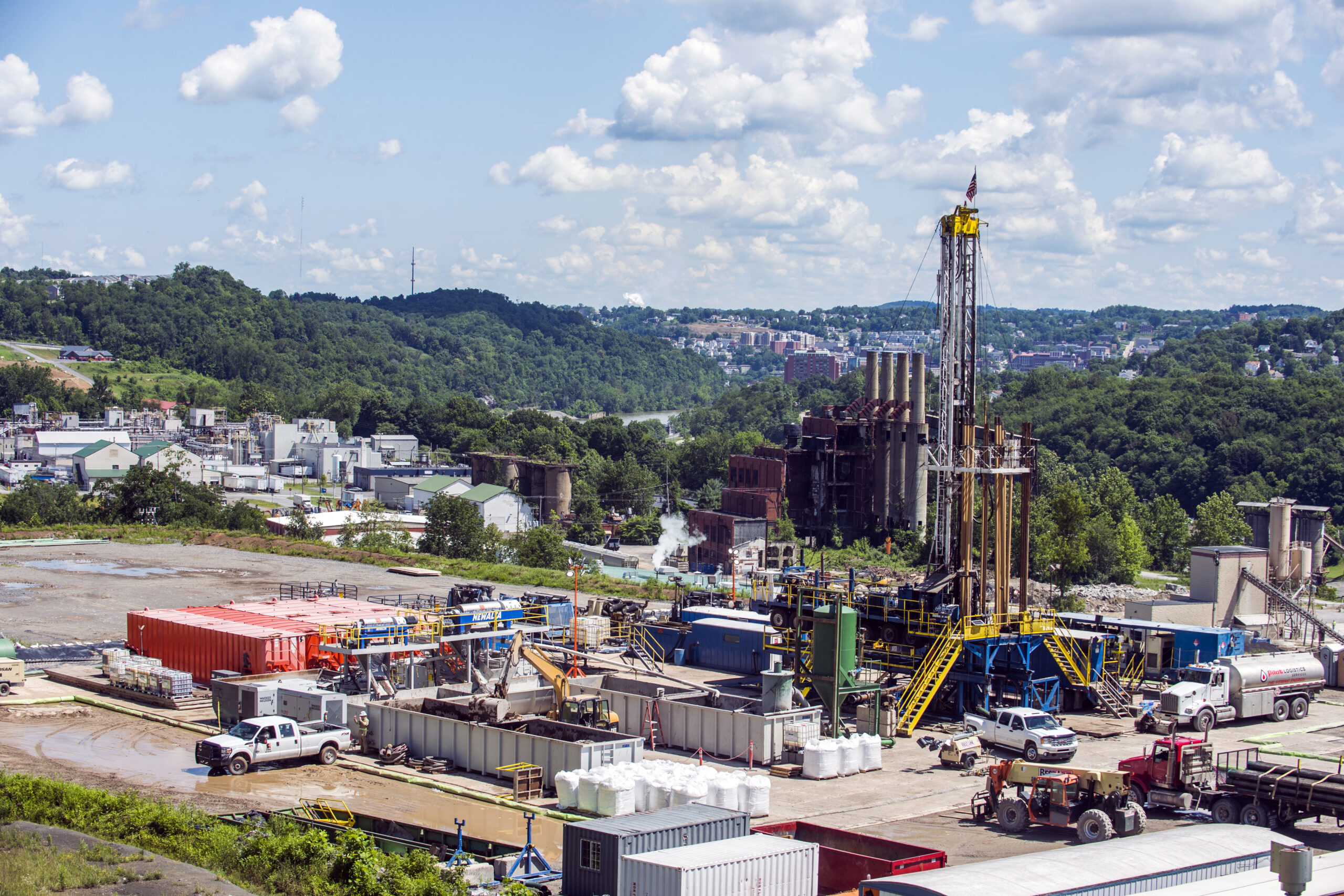MORGANTOWN – The Senate Energy Committee approved what could be the second bill of the session to raise money for the underfunded and understaffed Office of Oil and Gas, which is responsible for inspecting 75,000 oil wells across the state.
The committee originated the bill, and it has no number. As amended in committee, it levies an oversight fee of $100 for every working well in the state producing more than 10 Mcf (thousand cubic feet) that isn’t exclusively providing free gas to landowners.
The Office of Oil and Gas is part of the Department of Environmental Protection and DEP Deputy Secretary Scott Mandirola explained the office’s plight to the senators.
OO&G relies exclusively on well application fees, he said, unlike other offices that also charge various annual fees. And it gets no federal funding. It previously averaged 30 applications per year but that’s dropped to 15. To cope with the lost revenue, OO&G reduced staffing at the start of 2020 from 40 – including 20 inspectors – to 25, now with only 10 inspectors.
Even when fully staffed, he said, the 20 inspectors were able to check only about 6,000 wells per year – not even 10%.
Mandirola also broke down the money situation. With a staff of 40, it needed $3.5 million per year to operate. With 25, it needs $2.4 million. At current permitting levels, it’s taking in about $1.1 million – a $1.3 shortfall – just to operate understaffed.
On March 18, the Legislature passed SB 404, which will impose a $2,500 per well fee on gas producers that apply to modify horizontal well permits. It’s expected to raise about $500,000 per year and awaits the governor’s signature.
Assuming it becomes law, Mandirola said, that still leaves OO&G $800,000 short to operate with a staff of 25. Asked if they’d like to see it get back to full staff, he said, “That would be ideal, I believe.”
As amended, Mandirola told the senators, the bill would cover 13,661 wells and raise about $1.36 million if gas sells at $2.50 per Mcf. That would be enough to operate with a staff of 25.
Charlie Burd, executive director of the Gas & Oil Association of West Virginia, said Mandirola’s gas price figure is too high. Last year saw the lowest prices in 30 years – $1.37 per Mcf for gas in this region.
The fee will be a hardship on some producers, he said. He recently talked to one whose average well netted just $300 per year, so the fee would cut that to $200.
He also noted that there are about 4,000 horizontal wells in the state that produce about 95% of all the gas; the remainder produce just 5%.
Dave McMahon, co-founder of the West Virginia Surface Rights Organization, testified in support of the bill. On Feb. 4, he participated in a press conference with committee member Sen. Richard Lindsay, D-Kanawha, and Delegate Evan Hansen, D-Monongalia, to promote Hansen’s version of this bill, HB 2725, which has been stuck in House Energy since it was introduced Feb. 24.
McMahon said there are from 50,000 to 60,000 active wells in the state, along with 12,000 unplugged abandoned wells. About 5,000 of the abandoned wells are orphaned, with no known owner responsible for plugging them.
It’s not just working wells that need inspections, he said. An Ohio study showed that about 25% of its unplugged wells are leaking gas, which poses environmental problems.
As it came to the committee, the bill mirrored Hansen’s and included all wells except those providing free gas. After hearing from Mandirola, Burd and McMahon, Lindsay offered the amendment to exempt the low-producing wells.
The committee approved the bill in a voice vote, with no audible votes against. It will go to the Senate floor.
Tweet @dbeardtdp




